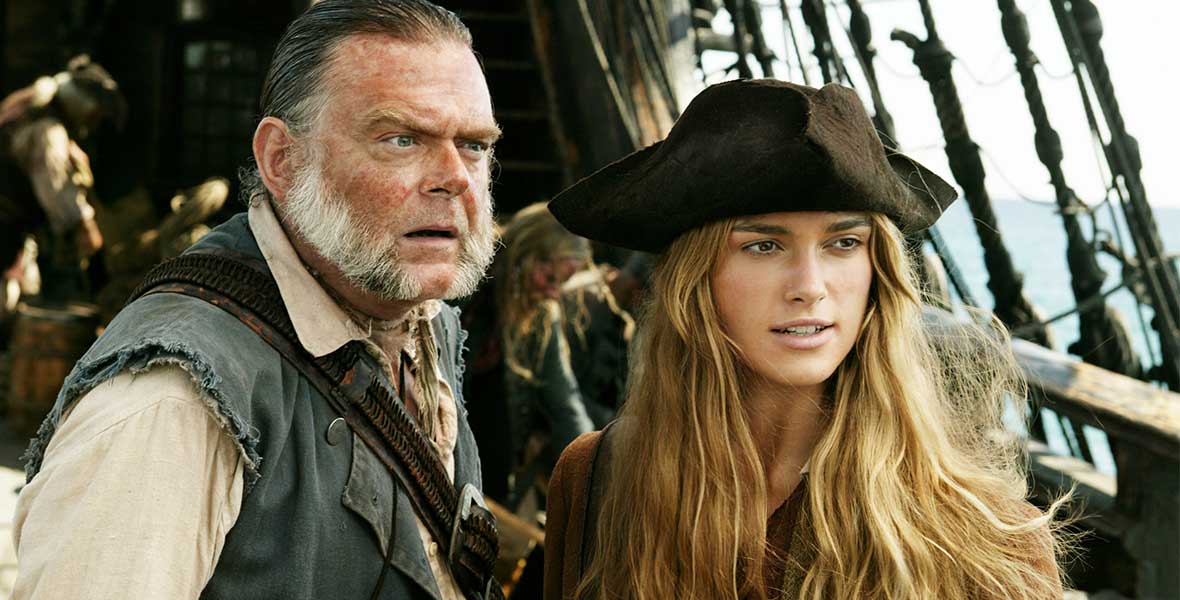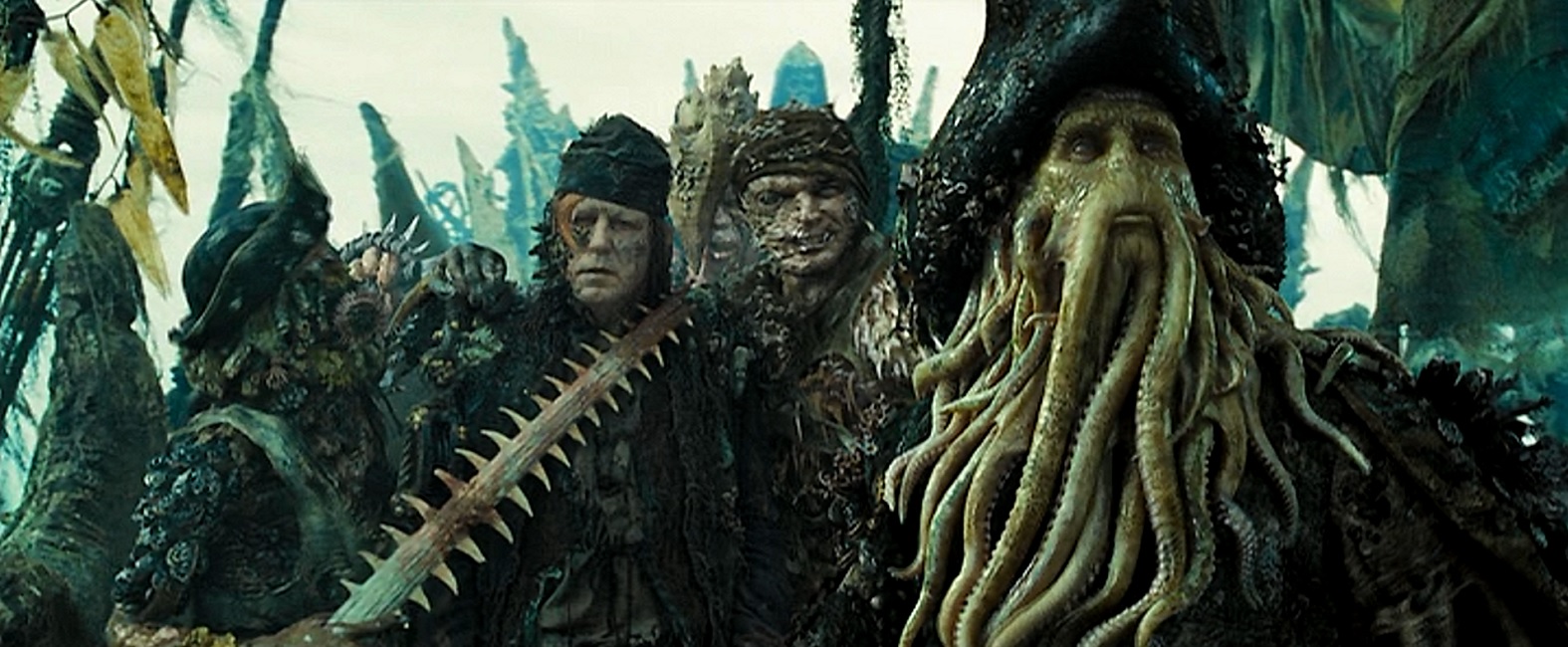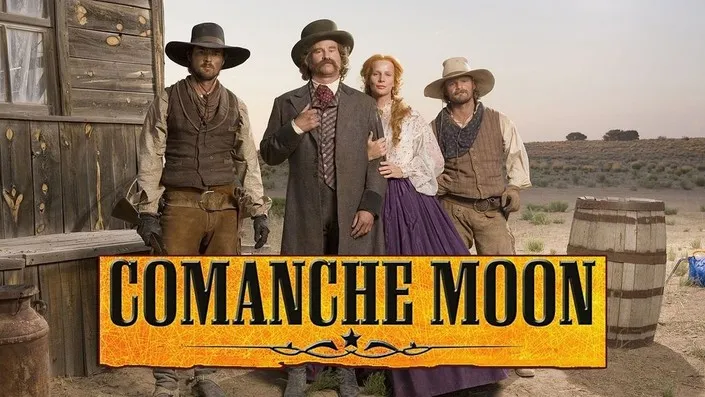“Betrayal, monsters, and the roar of the sea — for a pirate, freedom always costs the soul.”
Waves crash. Storm clouds gather. And amid swirling sails and thunder, the devil himself comes calling for debts unpaid. In “Pirates of the Caribbean: Dead Man’s Chest” (2006), director Gore Verbinski unleashes a roaring sequel that’s bigger, darker, and even more deliriously fun than its predecessor.
Captain Jack Sparrow (Johnny Depp) sails once more into treacherous waters — and not merely the physical kind. The film picks up as Jack learns that his debt to the monstrous Davy Jones (Bill Nighy) has come due. Bound by blood and bargain to serve aboard the Flying Dutchman for eternity, Jack’s only hope is to possess the fabled Dead Man’s Chest, which holds the still-beating heart of Davy Jones himself.

Meanwhile, Will Turner (Orlando Bloom) and Elizabeth Swann (Keira Knightley) find themselves entangled in Jack’s chaos once more, forced into a desperate quest of their own when Lord Beckett of the East India Company uses their love—and their freedom—as leverage to acquire the Chest for imperial power.
Visually, “Dead Man’s Chest” is a feast. Verbinski transforms the seas into both playground and nightmare. From skeletal jungles where cannibals prowl to the cavernous decks of the Flying Dutchman, every frame gleams with eerie, baroque detail. The creature effects are groundbreaking, especially Davy Jones—a marvel of digital artistry, his beard a writhing mass of tentacles that curl and twitch with malevolent life.

Yet beneath the spectacle, the film pulses with deeper themes: freedom versus fate, love corrupted by obligation, and the idea that even the most flamboyant pirate can’t outrun the consequences of his past.
Depp is once again magnetic, his Jack Sparrow weaving drunken swagger, cunning brilliance, and sheer cowardice into one unforgettable antihero. His comedic timing sparkles, but so too does the pathos in Jack’s eyes as he realizes his wits may not save him this time.
The sword fights are exhilarating, the Kraken’s attacks thunderous, and Hans Zimmer’s score surges like the tide itself—heroic, ominous, and utterly thrilling.

By the time the credits roll, debts remain unpaid, alliances are shattered, and the sea seems deeper—and more dangerous—than ever before. “Dead Man’s Chest” doesn’t just deliver a sequel; it deepens the legend, proving that in the world of pirates, the horizon always holds a darker storm.


-1751507499-q80.webp)
